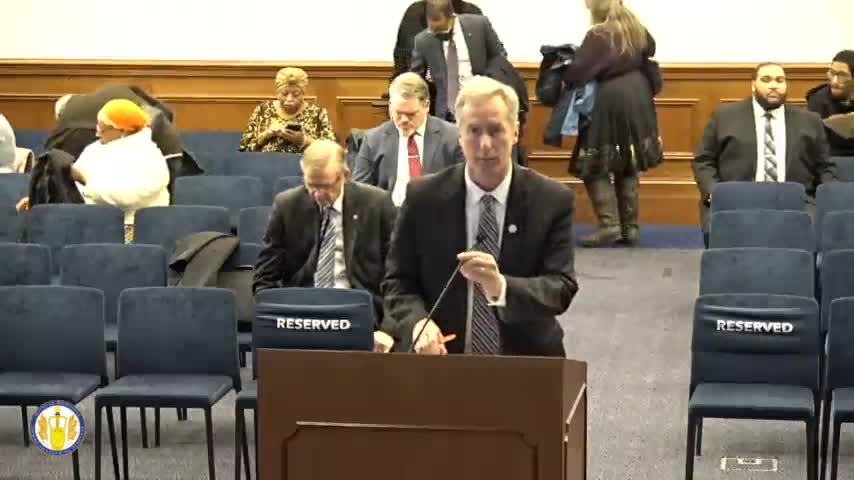Subcommittee advances HB 1711 to establish Mass Violence Care Fund with $10 million capitalization and definition changes
Get AI-powered insights, summaries, and transcripts
Subscribe
Summary
The Courts of Justice Subcommittee voted to report HB 1711, which would codify a Mass Violence Care Fund capitalized by the $10 million previously appropriated and establish definitions, eligibility and administration as a sub-fund of the Virginia Victims Fund.
The Courts of Justice Subcommittee on Criminal Law voted to report HB 1711, authorizing a Mass Violence Care Fund capitalized by $10,000,000 appropriated previously, and establishing statutory definitions and administration rules intended to address long-term gaps in care for victims of mass violence.
Sponsor Delegate Bulova described HB 1711 as the legislative outcome of a year-long work group formed by the 2023 Appropriations Act to define a mass violence event and the fund’s structure, eligibility and disbursement mechanics. The bill would create a separate, nonreverting sub-fund of the Virginia Victims Fund (also known as the Criminal Injuries Compensation Fund) administered by the Virginia Workers’ Compensation Commission and use interest earned on the $10 million capitalization for annual disbursements. "The purpose of the fund is to reimburse victims of mass violence events for out of pocket expenses related to physical health and mental health that aren't covered by other means," Bulova said.
Work group members and sponsor explained several design choices: the fund is intended as a last resort after other sources—private insurance or the Virginia Victims Fund—are exhausted; it imposes a three-year waiting period before a claim can be filed to allow for longer-term mental-health impacts to emerge; and it relies on a working definition of mass violence modeled on federal agency definitions and internal Virginia practice (the Virginia Victims Fund has been treating incidents that result in three or more victims as mass violence events).
Shannon Dion, director of the Virginia Victims Fund (Criminal Injuries Compensation Fund), said the fund typically requires a police report to establish that an intentional criminal act occurred and relies on medical records to substantiate physical injury. Counsel for the subcommittee noted the bill uses language already found in the current CICF statute (cited in the hearing as 19.2-368.2) and that the commission and the fund will define more specific regulatory standards in implementing rules.
Members questioned several operational points: whether claimants must exhaust civil remedies before applying to the Mass Violence Care Fund and how administrative costs would be handled without depleting the capital; how "physical injury" would be substantiated; and whether the three-or-more-victims threshold could capture incidents such as brief assaults involving multiple people. Counsel and fund representatives said administrative rules will specify many details; the chair and others pressed to include clear statutory language where practicable rather than relying solely on budget enactments or administrative rulemaking.
The subcommittee considered and accepted a friendly amendment to insert the word "direct" into the definition of a victim of mass violence so the statutory phrase reads, in part, "a person who has suffered physical, emotional, or psychological injury as the direct result of a mass violent offense." That amendment was offered by committee counsel and accepted by the sponsor to align the new fund’s definitions with existing victims-fund practice.
Public testimony included a private individual, Andrew Goddard, who spoke as the parent of a survivor and urged attention to long-term medical and mental-health needs, and Joseph Samaha, representing families affected by the Virginia Tech shooting, who described gaps in long-term financial support and endorsed the proposed fund model. Several members raised concerns about ensuring administrative costs do not erode capital available to victims; the sponsor said pairing the new fund with the existing Virginia Victims Fund should create administrative efficiencies but that appropriations would need to address resourcing.
After discussion and the friendly amendment, the subcommittee voted 4–3 to recommend reporting HB 1711, as amended, and to refer the bill to the Appropriations Committee for consideration of administration and funding mechanics. The bill’s statutory language and the enacted enactment clause direct the relevant agencies to develop implementation guidelines and regulations.
